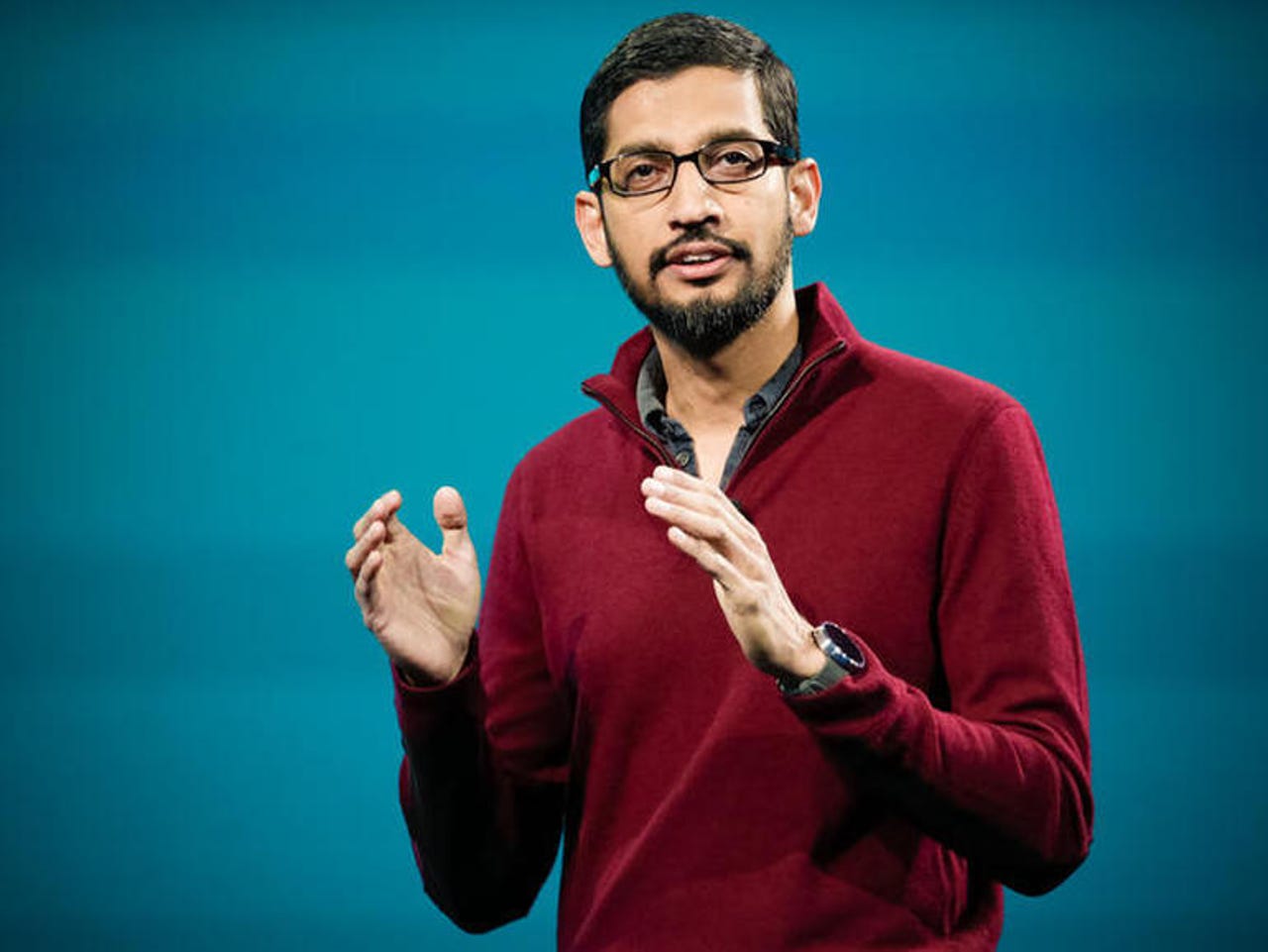Google CEO Pichai says devices will fade away - but launches new hardware division


Google CEO Sundar Pichai: "The next big step will be for the very concept of the 'device' to fade away."
Never mind the world's shrinking smartphone market, Google CEO Sundar Pichai foresees a time when devices will completely vanish, to be replaced by omnipresent artificial intelligence.
"Looking to the future, the next big step will be for the very concept of the 'device' to fade away," Pichai said in his first letter to shareholders on Thursday.
"Over time, the computer itself, whatever its form factor, will be an intelligent assistant helping you through your day. We will move from mobile-first to an AI-first world," he continued.
Google's investments in AI are preparing it for such a world. Pichai explained that Google is aiming to be there at every turn for users, offering "assistance" so they don't have to type anything into a device.
"You should be able to move seamlessly across Google services in a natural way, and get assistance that understands your context, situation, and needs, all while respecting your privacy and protecting your data," he writes.
"The average parent has different needs than the average college student. Similarly, a user wants different help when in the car versus the living room. Smart assistance should understand all these things and be helpful at the right time, in the right way."
While devices as we know them may disappear from view, Google itself isn't quite at that point. The company also announced on Thursday that it had created a new devices division to be headed by former president of Motorola, Rick Osterloh.
According to Re/code, the division includes Google's Nexus devices, Chromecast, and consumer hardware such as Chromebook and the Pixel C.
Google is also moving its OnHub home router from Alphabet-run Access to its devices division, as well as ATAP, the experimental hardware unit Google retained after selling Motorola to Lenovo. The other device Osterloh will oversee is Google Glass.
Until devices are swept aside by AI, Pichai see a role for smartphones in delivering Google's smart assistance from the cloud.
"Your phone should proactively bring up the right documents, schedule and map your meetings, let people know if you are late, suggest responses to messages, handle your payments and expenses," he noted.
Read more on Google
- App got ads? Google Play now warns users before installing
- HP's Chromebook 13 is a cheap, pretty, yet powerful new notebook
- Google Calendar's 'find a time' feature will help schedule work meetings
- HTC reportedly building two Android N devices for Google
- Google Play Store apps may be coming to Chrome OS
- Google accused of 'promoting piracy' in Getty images EU complaint
- Google Apps extends enterprise agreement promotion to smaller companies
- Google targets Microsoft's mobile ambitions: Gmail Android now supports Exchange work email